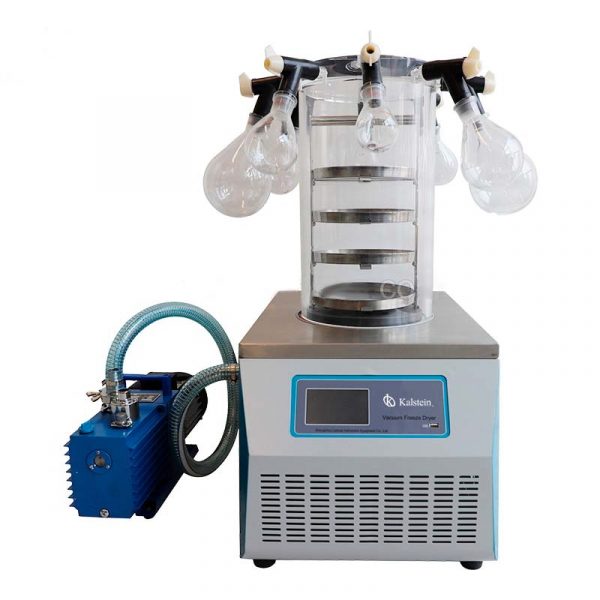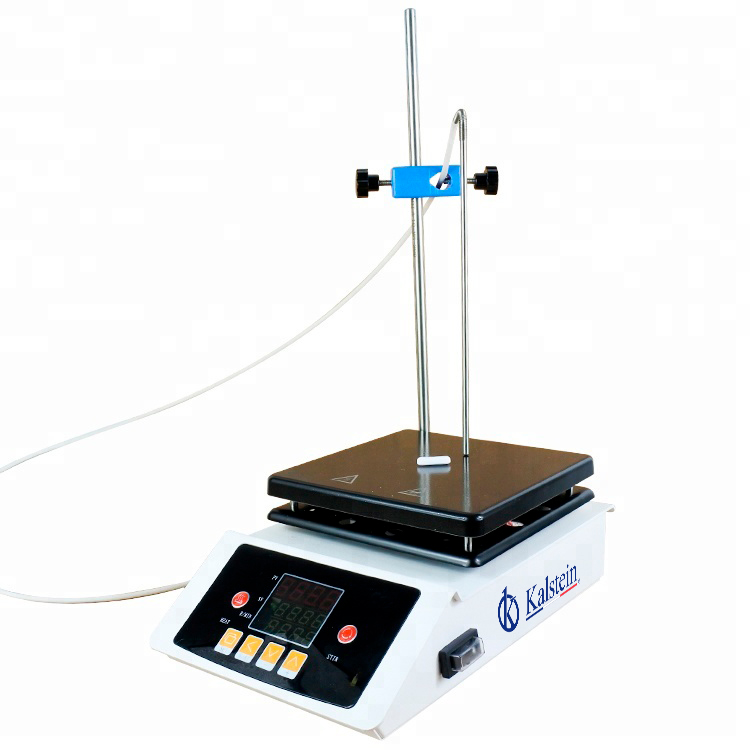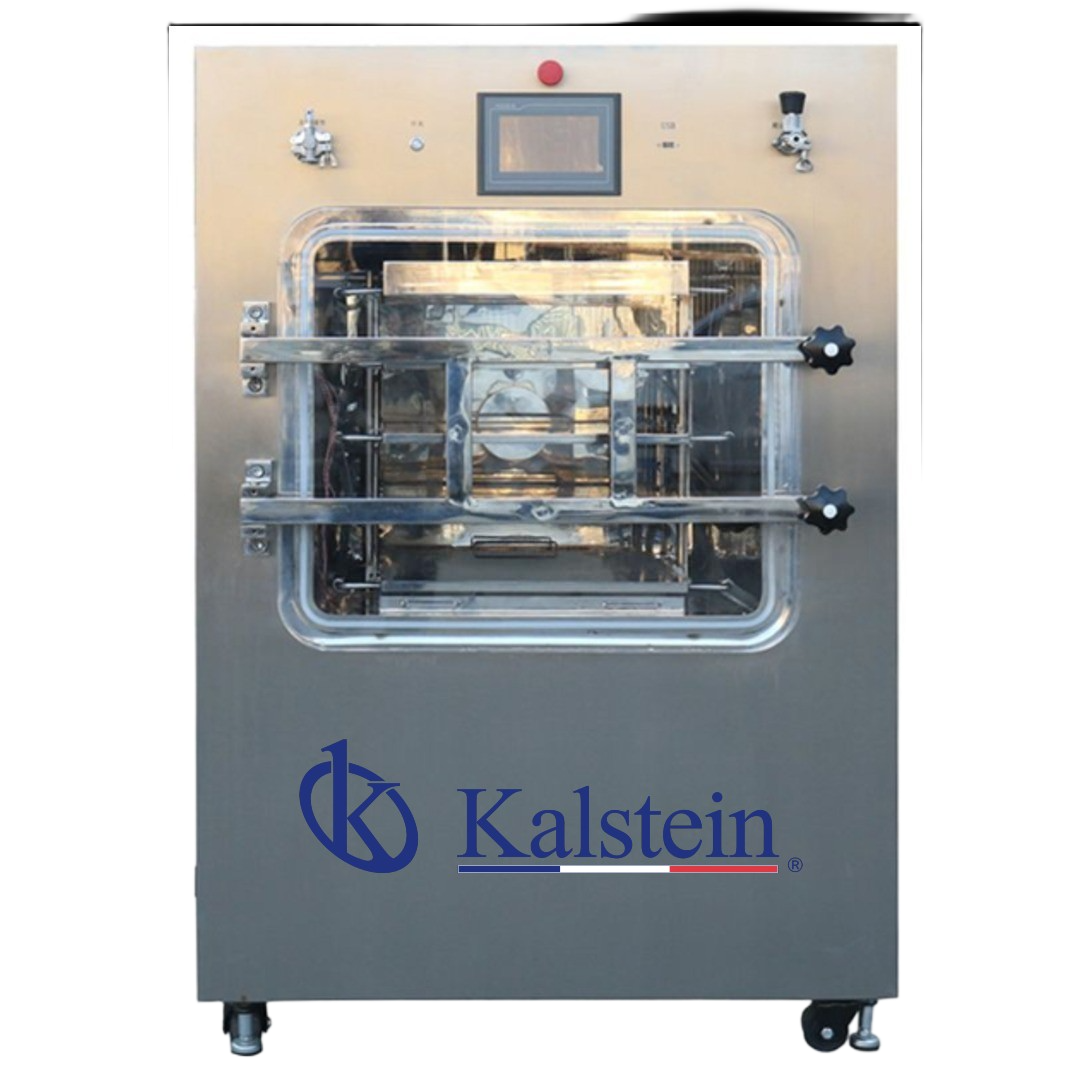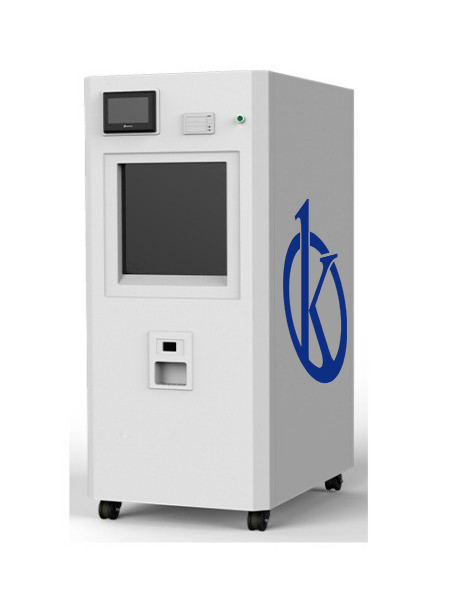Water is a substance that supports the life cycle biochemical activities of microorganisms. The absence of water in biological samples results in a state of latency and inhibition of biochemical activity, so this factor plays an important role in the conservation and stability in the storage of various biological products. In order to conserve labile products, the amount of water must be reduced, since it provides conditions that enhance autolysis and promote the growth of polluting organisms. The stored biological material must have three fundamental characteristics to be used in any field (research, pharmacy, agribusiness, among others): purity, identity and stability; and these depend on the success of the conservation and storage process.
Freeze-drying allows long-term storage, provides a dry, active, stable and easily soluble product. However, the processing of a large number of crops is laborious. This technology offers advantages that include: decreases the loss or contamination of biological material, eliminates crop maintenance costs, prevents phenotypic changes due to genetic instability or differences in relative pressures.
What is a lyophilizer?
It is an instrument used to remove water associated with a product through cold drying. The material placed in the lyophilizer is subjected to a very low temperature, usually below – 40°C. Then, with a vacuum pump, the pressure in the equipment is reduced and the water that is in solid state is dragged by steaming it, through the process known as sublimation. The resulting biological material is frozen. The equipment used to develop this procedure is called a lyophilizer, and consists of:
- Dry chamber: this is where the freeze-dried substance is carried out.
- Condenser with cooling circuit: it is a device that communicates with the dry chamber and its function is to condense the steam that is produced in the sublimation.
- Vacuum system: allows air to remove air from the dry chamber when starting the freeze-drying process.
Freeze-drying processes of microbiological samples
External method: it is carried out by pre-freezing the product in a freezer and then connected to the lyophilizer through a three-way rubber valve. It allows the use of round-bottomed flasks, wide-necked filtration bottles, ampoules, plates, vials or similar containers on platforms. The product could be dried in an acrylic or stainless steel cover.
Internal method: the process can be carried out automatically within the unit without further product handling. Use plates, vials or similar containers inside the ice condenser chamber. This method is especially recommended for expensive or sensitive low-freezing products.
General characteristics to consider when buying a lyophilizer
- Portable or desktop design.
- Drying chambers for easy installation and maintenance of vacuum chambers.
- Ice condenser whose capacity and temperature will be according to the model and supplier.
- Individual or integrated vacuum system.
- Touch Screen Monitor Technology.
- Real-time display of ice condenser and raw material temperature, vacuum degree, freeze drying curve, historical temperature, data exportable to U disk.
- Vacuum breaking valve.
- Manual defrost water discharge valve.
Storage for the preservation of lyophilized organic samples
- Store biological material and diluent at storage temperature between 2 °C and 8 °C (36 °F and 46 °F). In maintaining the appropriate temperature, characteristics such as personnel equipment, types of refrigerators, transport, packaging material, and storage standards should be considered.
- Set the appropriate temperature to maintain the cold chain while diluting. It may cause deterioration at temperatures below 0 °C, as it causes inactivation of the product, or deterioration at higher temperatures. For this, the characteristics of the sample must be evaluated.
- Protect the samples from light because they may be made up of light-sensitive organisms.
At Kalstein we offer you freeze drying equipment designed specifically to meet high-level processes such as microbiological samples. For PURCHASE, SALE, or PRICE information, contact us on our website: HERE




